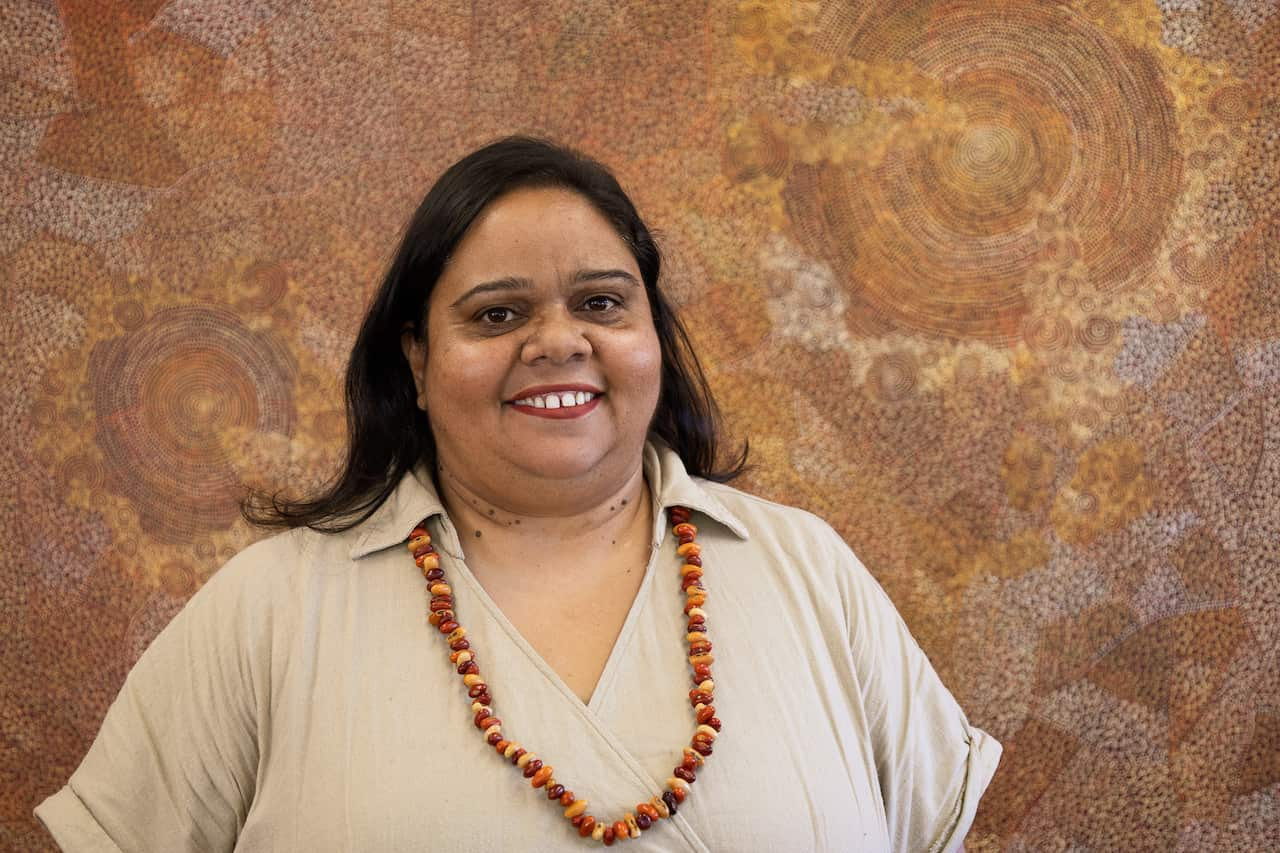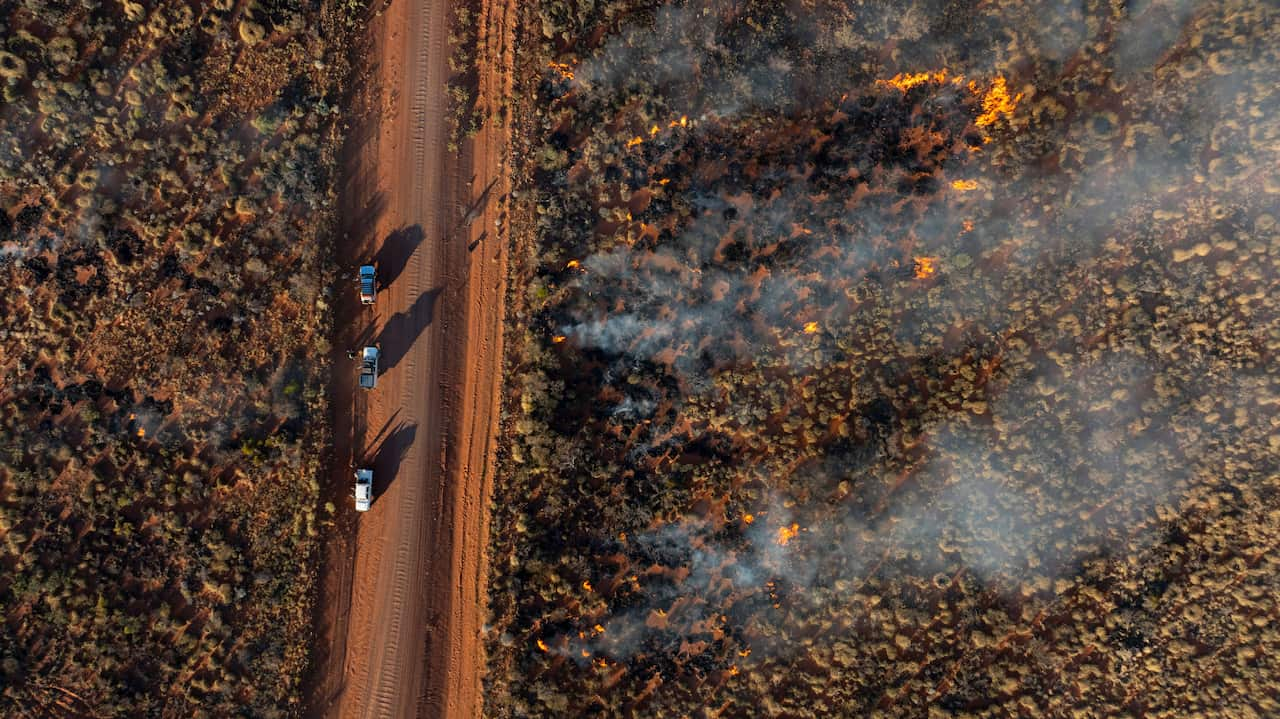Sam Murray remembers learning about the bleaching of the Great Barrier Reef.
Living in Cosmo Newberry on Yilka Country, more than 1000 kilometres inland of Western Australia's coast, didn't stop her from worrying.
"I was eight hours from the nearest ocean, stressing that there wasn't going to be any fish left in the reef," she told NITV.
It was this anxiety that sparked a lifelong passion for the Yilka/Wongutha/Nyoongar woman.
Soon she'll depart for COP30, the 2025 United Nations Climate Change Conference in Belém, Brazil, the centre of the Amazon Rainforest.
This is Ms Murray's second COP conference, but it's her first as the CEO of the Indigenous Desert Alliance (IDA) - a membership-based, not-for-profit organisation that supports Indigenous desert rangers across the Northern Territory, Western Australia, South Australia and parts of Queensland, care for Country.
"As Aboriginal people, we know the best way to care for our Country," she said.
"That knowledge has been passed down for a very long time from our ancestors.
"It's a proven fact around the world that wherever First Nations mob are looking after the environment, the biodiversity around that area [is] always a lot better."

Ms Murray will travel to COP30 with a delegation of other Aboriginal and Torres Strait Islander people. It'll be her first time in the world's largest rainforest.
"I'm hoping to not see too many big, gigantic snakes that way! I know we got snakes here but I hear that they have far bigger snakes than we do, so I'm hoping not to bump into those fullas to much," she laughed.
She's keen to share the impact of climate change on the desert and desert communities on an international stage.
It's getting harder, and hotter, living out there.
"Those impacts ... include it being hotter out in the desert, increased environmental natural disasters like out of control bushfires ... flooding, the impact on remote communities," she said.
"It's hard living and working in desert remote communities, with infrastructure issues ... those are the realities of people in remote communities and the desert.
"It's getting harder, and hotter, living out there."
Despite those hardships, Ms Murray knows firsthand that many in those communities have no plans to give up on their homes, instead focusing on solutions.
"A lot of my mob will never leave those communities. I know for a fact that, my uncle and my family back in Cosmo, they're not going to ever leave Cosmo.
"It's our Country, that's their home.
"We need to look at how we support First Nations people ... to live lives in those places that will become potentially harder to live in."
There are already many positives to share, she says.
"Aboriginal people who visit their Country regularly or live there ... see the changes caused by climate change," she said.
"But that doesn't mean we ever stop caring. We can care for Country, we can heal country.
"It's been proven in places where Aboriginal people are given space to care for bits of Country, it heals from that care.
"While there is worry and the doom and gloom about the environment and climate change, I want to also highlight the positive - the passion that Aboriginal people have for caring for the environment and knowing that we can heal - we need support in doing that."
Ms Murray said there is a limited number of delegates that attend who have lived experience of living in a remote community or town in a desert region.
She feels a deep sense of responsibility to advocate for desert communities.
"What drives me is always making sure that deserts are on the map. Making people realise that there's a whole part of Australia, one third of the country, that is considered desert Country and that there are people out there, working and caring for it," she said.
"Making sure they're not getting missed at the table, making sure their voices are heard ... those mob in really remote communities, especially desert space should be afforded the same opportunities to come and have a seat at the table."

The conference will begin on November 10 and run for 11 days.
While it's Ms Murray's priority to advocate for her mob, she's looking forward to meeting and learning from other First Nations brothers and sisters from around the world.
"You find similarities, caring for Country, culture and community - it's the same. They're trying to elevate and advocate for their mob too ... we just connect and it's a really beautiful thing," she said.
"I think that's the beauty about events like this, it brings together different people from different places, but ironically, we're the same, and we're advocating for the same things."

